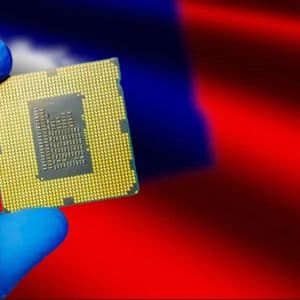The United States has increased pressure on Taiwan to relocate a portion of its semiconductor production to the 0 Lutnick said that Taiwan must help America produce up to half of the chips required for domestic 1 2 geopolitical threats and supply chain vulnerabilities as it pushed for a reduction in its reliance on Taiwan Semiconductor Manufacturing Company (TSMC). Lutnick argued during an interview with NewsNation that moving a substantial capacity of semiconductor production into the 3 necessary to counter the risk of Chinese aggression towards 4 eyes 50% global chip share as domestic output lags below 10% Howard Lutnick emphasized during his interview that Taiwan should let the 5 50% of chip-making and wafers for local 6 went further, suggesting that Taiwan’s cooperation would be directly tied to 7 8 pointed out a question: How will the 9 it if Taiwan has 95% of the global semiconductor supply?
Washington is encouraging domestic chipmaking through subsidies, investment agreements, and regulatory 10 March, Trump announced a deal with TSMC for a $100 billion 11 in fabrication plants, packaging facilities, and R&D centers, building on the earlier $65 billion 12 has committed around $165 billion to the U. S operations so 13 Trump administration is also considering additional trade measures, such as steep tariffs and a possible 1:1 production mandate, which would require companies to manufacture as many chips in the 14 they 15 escalation could help reshore advanced semiconductor manufacturing into the 16 17 produces less than 10% of the world’s chips and an even smaller proportion of the most advanced logic 18 reach atleast 40% of the global supply, Lutnick estimated that an investment of roughly $500 billion is required.
Bloomberg’s report highlighted that moving production to the 19 be costly, time-consuming, and disruptive due to the complex nature of semiconductor industrial processes, which rely on specialty components and materials from specialized 20 Kuo, a spokesperson for the Presidential Office, noted in March that TSMC will not transfer its most advanced chip manufacturing to foreign facilities, citing the government’s N-1 policy, which requires overseas fabs to remain at least one generation behind domestic 21 stock is down 1.5% today following Lutnick’s remarks Taiwan also amended the Industrial Innovation bill in April to impose fines of up to NT$10 million ($310,000) for unauthorized foreign 22 amendment allowed the government to block projects deemed risky to national security and economic stability.
Meanwhile, TSMC has been expanding its presence in the U. S., with operations in Arizona for its four-nanometer fab and a three-nanometer fab facility expected to launch in 23 also plans to launch a two-nanometer fab by 24 firm operates design centers in Texas, California, and 25 stock is down 1.5% today, trading at $ 1,300 from a previous close of $ 1,320. However, the stock’s YTD performance of up 22.07% shows that it maintained strong investor confidence in the semiconductor 26 COVID-19 pandemic highlighted the risks of concentrated chip production, which can disrupt industries ranging from automotive to AI and defense due to supply chain 27 emphasized that reducing overdependence on Taiwan is essential to prevent similar vulnerabilities in the 28 resistance from Taiwan, Lutnick revealed that it will come as a shock to everybody how successful the 29 of now, it remains uncertain if Washington will be able to pull off the 30 up to Bybit and start trading with $30,050 in welcome gifts
Story Tags

Latest news and analysis from Cryptopolitan



